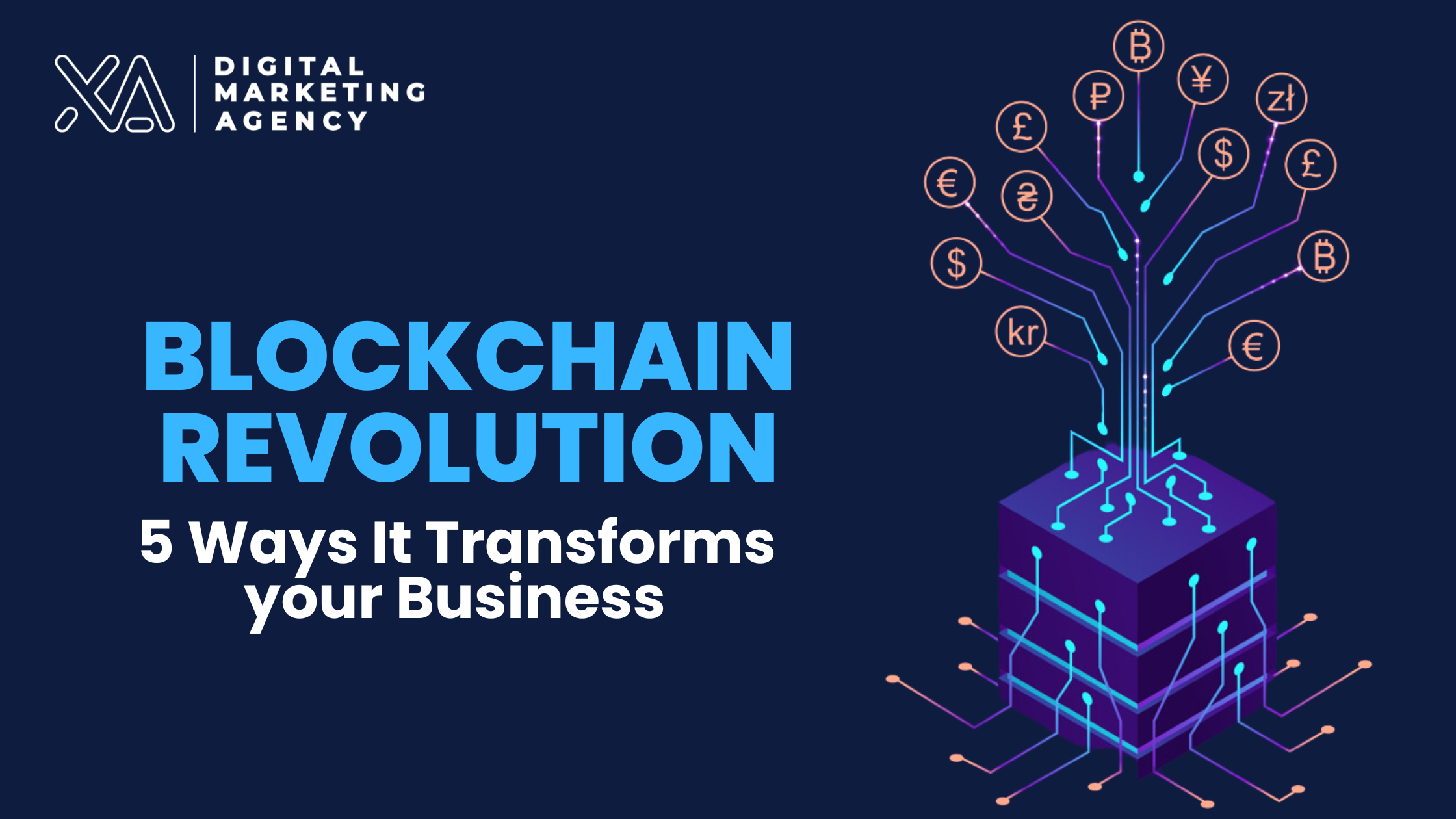
But what exactly is blockchain, and how can it help your business?
Imagine a digital record book that is completely transparent and secure, accessible to everyone involved in a transaction. This is the essence of blockchain technology. It removes the need for a central authority and promotes trust and efficiency in many ways.
At XIRA Infotech, we stay at the forefront of digital innovation and are excited to explore how blockchain can transform your business.
This revolutionary technology goes far beyond just powering cryptocurrencies. Its core principles of decentralization, security, and transparency have the potential to simplify processes, build trust, and create new opportunities across various sectors.
So, how can blockchain revolutionize your industry? Let’s explore five significant ways.
1. Enhanced Transparency and Traceability:-
Lack of transparency often troubles supply chains. Counterfeit goods, ethical sourcing concerns, and delays trouble businesses and consumers alike.
Blockchain Development offers a solution by enabling transparent tracking of a product’s journey from its origin to its doorstep, ensuring ethical sourcing and sustainable practices. The blockchain makes this possible. Creating a secure, shared ledger can document and verify every step of the supply chain. This empowers businesses like yours to:
- Build consumer trust: Showcase transparency in your practices, allowing customers to make informed choices.
- Reduce counterfeiting: Blockchain technology ensures that your products are genuine and cannot be easily copied or faked.
- Improve efficiency: Use real-time tracking with blockchain to make your supply chain smoother and quickly identify any problems or delays.
Example: Walmart, a retail giant, is using a blockchain-based system to track the movement of food products. This allows them to identify potential contamination sources faster and ensure food safety for their customers.
2. Secure and Efficient Transactions in Finance:
Traditional financial transactions can be slow and expensive, especially for cross-border payments.
Blockchain-powered cryptocurrencies like Bitcoin enable faster, cheaper, and more secure international transactions. The finance industry is ready for big changes with blockchain technology. Its secure and clear way of working could completely change how we manage money. Here’s how blockchain could transform finance:
- Faster and cheaper international payments: Get rid of middlemen, which means faster and cheaper transactions across borders.
- Reduced fraud: Blockchain’s security features keep transactions very safe and hard to tamper with, reducing the chance of fraud.
- Improved financial access: Offer secure financial services to people who don’t have bank accounts.
Example: Several banks are exploring blockchain technology for international payments For example, RippleNet, a blockchain-based platform, facilitates faster and cheaper cross-border transactions between financial institutions.
3. Revolutionizing the Healthcare Industry with Secure Data Management
Paperwork and administrative tasks create significant challenges in healthcare systems. Medical records are often scattered and incomplete, causing inefficiencies and mistakes.
Blockchain facilitates the secure storage and sharing of medical records. This allows for faster access to patient data, improved collaboration between healthcare providers, and reduced administrative costs. Patient data security is extremely important in healthcare. Blockchain provides a secure method to store and manage sensitive medical information.
- Better patient control: Allow patients to decide who can access their medical records, improving privacy and security.
- Easier data sharing: Safely share medical records among approved healthcare providers, speeding up diagnoses and treatment planning.
- Reduced errors and fraud: Blockchain’s unchangeable records reduce errors and prevent medical data from being used fraudulently.
Example: Many healthcare groups are looking into blockchain for managing medical records. Many startups use blockchain to build a safe platform for storing and exchanging patient data.
4. Building Trust and Brand Loyalty in E-commerce and Retail
Fake products and concerns about product authenticity can make consumers less confident about shopping online.
Blockchain enables product traceability from origin through the supply chain. This can assure consumers of product authenticity and build trust in your brand.
Example: Luxury brands are using blockchain to verify the authenticity of their products.
5. Unlocking a New Era of Digital Ownership with NFTs:
Artists and athletes often encounter challenges in receiving fair compensation for their work. Piracy, copyright infringement, and unauthorized use remain significant obstacles.
Blockchain-backed Non-fungible tokens (NFTs) are like unique certificates of digital ownership. Blockchain technology supports NFTs, opening up exciting possibilities:
- Protecting intellectual property: Safely establish ownership of digital assets such as art, music, or designs, preventing unauthorized use.
- Transforming ticketing: Eliminate fake tickets and simplify event organization using secure, blockchain-based ticketing systems.
- New opportunities for content creators: NFTs allow creators to earn money directly from their work, promoting a more sustainable content creation community.
Example: Artists, musicians, and even sports teams are using NFTs to create new income sources and connect with fans in creative ways.
Conclusion
These are just a few examples of how blockchain technology can revolutionize various industries. At XIRA Infotech, we believe blockchain has the potential to transform the way businesses operate, interact with customers, and build trust.
Ready to explore how blockchain can benefit your specific industry? Our team of experts at XIRA Infotech is here to guide you through the possibilities. Contact us today for a free consultation and discover how blockchain can unlock the potential of your business.




0 Comments